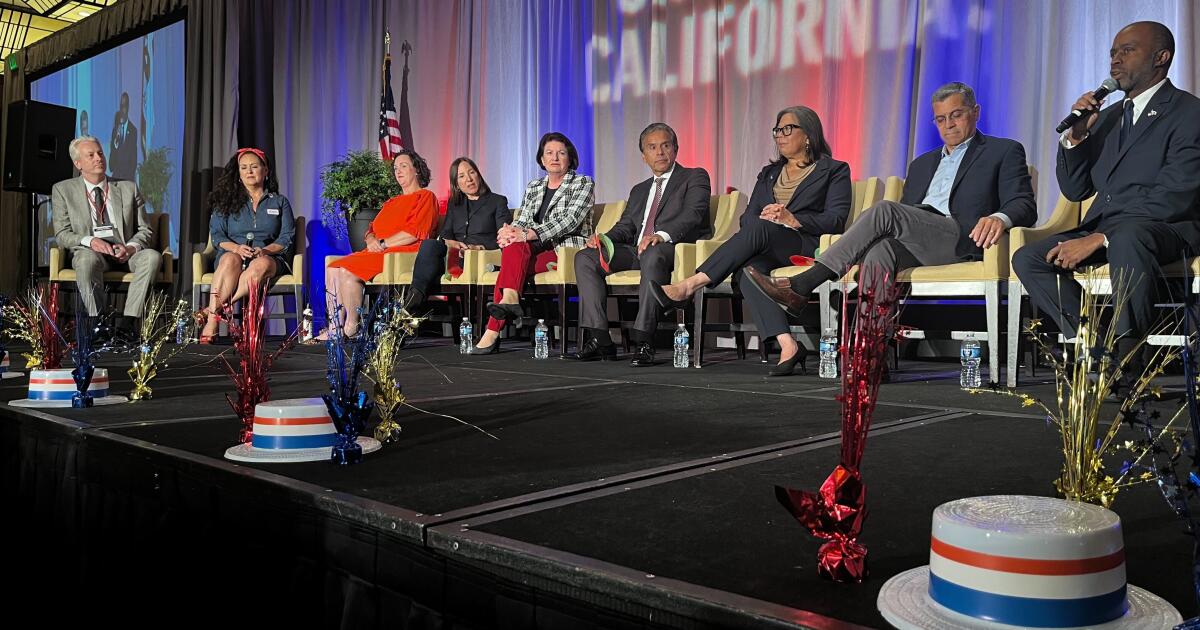No ‘Pikachu’: Why is Japan at war against unconventional, ‘glittery’ names? | Government News
Japan has introduced new rules restricting how names are spelled and pronounced. The new regulations, announced last week, aim to quell a growing practice of Japanese parents giving their babies unconventional names, known as “kira kira”, or glittery, in kanji, one of Japan’s major writing systems.
But why are such names a problem for Japanese authorities? And do the new rules spell disaster for parents who want to break the mould and name their children Nike, the shoe brand, or Pikachu, the little lagomorphic animated character with lightning powers, which is part of the Japanese media franchise Pokemon?
What are kira kira names?
A kira kira name is a non-traditional name where the pronunciation is unusual or does not match the standard or phonetic pronunciation in kanji.
Japan primarily uses three systems of writing: hiragana, katakana and kanji. Kanji employs Chinese characters and is used in writing names. Parents in Japan can choose from among 2,999 kanji characters to name their child – out of these, 2,136 characters are commonly used. Hiragana and katakana can also be used.
Kira kira names, while relatively uncommon, started to grow in popularity in Japan in the 1980s, influenced by pop culture, brands and popular games like Pokemon or characters from the world of Tokyo-based animation house Studio Ghibli.
Parents pick what they want to call their child – say, Pikachu or the fictional character Hello Kitty. Then, they try to piece together kanji characters that sound like the name they picked.
But often, the kanji pronunciation is nowhere near what the name is supposed to sound like.
What’s the problem with kira kira names?
The names are spelled a certain way, but are meant to be pronounced very differently, making it difficult even for Japanese speakers to read the name correctly, causing confusion at places like hospitals and schools.
Take a name written like “今鹿” in kanji characters. Those letters suggest a pronunciation like “imashika”, typically a family name, said John Maher, a linguist at Temple University’s Japan campus who specialises in the sociolinguistics and languages of the country.
However, what the parents might have intended is the given name “Naushika,” inspired by the titular character of Hayao Miyazaki’s 1984 animated Studio Ghibli film, Nausicaa of the Valley of the Wind.
“A primary school teacher taking roll stares at the kanji of the little girl in the front row and scratches her head. ‘Huh? Naushika?! Are you kidding me?’ It’s the name of a Ghibli studio anime film,” Maher told Al Jazeera.
He cited another example — “七音,” which is pronounced as “nanane,” typically a given name. However, it is supposed to be pronounced like “doremi” – either a nod to the early 2000s anime, Ojamajo Doremi, or to a character in the manga series Doraemon.
“It’s causing a public fuss for one basic reason: frustration in everyday life. Schoolteachers cannot figure out how to pronounce their pupils’ names. Bosses cannot figure out their worker names,” said Maher.
Why do people use kira kira names?
The “glittery” names appear to represent an effort to subvert tradition.
A study using data from Meiji Yasuda Life Insurance from 1913 to 2015 revealed that variations in naming patterns were growing over the course of the century.
Still, “until the government’s National Institute for the Japanese Language conducts an objective study, we don’t have the numbers”, Maher said. The National Institute for the Japanese Language (NINJAL) is a Tokyo-based independent research institute for the Japanese language, established in 1948 with the purpose of researching the Japanese language and making recommendations about its correct usage.
Linguist and author Adam Aleksic said he believed the trend represented a pushback against tradition.
“There used to be traditional names and these names are a reaction against those cultural heirlooms,” Aleksic told Al Jazeera.
But he added that this phenomenon was not restricted to Japan. “There are pop culture names everywhere,” Aleksic said, citing the example of how many parents around the world named their children Katniss after the popularity of the dystopian book series, the Hunger Games, and the resulting films.
In Japan, he said, the rise in kira kira names might represent a cultural trend towards individuality, “probably because of Western influence, whereas historically, it [Japan] was more of a collectivist culture”.
What has the Japanese government done?
The recent law was an amendment to a family registry law originally passed on June 2, 2023, Jay Allen, a Tokyo-based journalist for a publication called Unseen Japan, told Al Jazeera.
The revised law, which came into effect on May 26, requires families to register furigana readings of names on the family register. A furigana reading is a smaller script comprising syllabaries in hiragana and katakana to indicate the phonetic reading of kanji names.
Previously, the furigana was not notarised on the family register. Allen explained that the change would allow authorities to check for any mismatches between spelling and pronunciation.
Now, Japanese authorities will mail notifications to households to confirm the phonetic readings of the names of the members. This will be done not only for newborns, but for every household member with existing registered names. While older people with kira kira names will not have to change names, experts said, this exercise would help the government know exactly how all names are supposed to be pronounced.
Those who want to correct the phonetic readings of their names will need to submit corrections within a year of receiving the notification. Parents of newborns may have to explain the pronunciation of their children, and local media have reported that they may be referred to legal bureaus.
The government has not directly banned kira kira names, but the new law seeks to restrict parents from using unorthodox pronunciations of kanji characters. “If they’re using kanji, which most Japanese parents do, then they have to show that the pronunciations they chose somehow relate to common pronunciations for those kanji.”
Allen explained that the new law rejects names that have no relationship to the kanji spelling; and names that are easy to mispronounce.
What’s next?
Aleksic said that he believes that the new law could lead to a decrease in non-standard pronunciations. However, he added that parents might find other ways to make their children’s names unique and interesting, “maybe [using] rare characters, maybe focusing more on katakana”.
“I strongly believe that the desire for individuality wins out in the end and these parents will find other ways to make their [children’s] names unique, and then that will still annoy the old guard.”



